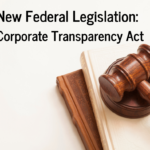On March 28, 2020, the U.S. Department of Labor’s Wage and Hour Division published additional guidance to employees and employers about the Families First Coronavirus Response Act (FFCRA), which includes the Emergency Paid Sick Leave Act (Emergency PSLA) and the Emergency Family and Medical Leave Expansion Act (Emergency FMLA).
A brief summary of the third round of guidance is below.
Definition of “health care provider”
The term “health care provider,” as used to determine individuals whose advice to self-quarantine due to concerns related to COVID-19 can be relied on as a qualifying reason for paid sick leave under the Emergency PSLA, means a licensed doctor of medicine, nurse practitioner, or other health care provider permitted to issue a certification for purposes of the FMLA.
Definition of “emergency responder”
For the purposes of employees who may be excluded from paid sick leave or expanded family and medical leave by their employer under the FFCRA, an emergency responder is an employee who is necessary for the provision of transport, care, health care, comfort, and nutrition of such patients, or whose services are otherwise needed to limit the spread of COVID-19. This includes but is not limited to military or national guard, law enforcement officers, correctional institution personnel, fire fighters, emergency medical services personnel, physicians, nurses, public health personnel, emergency medical technicians, paramedics, emergency management personnel, 911 operators, public works personnel, and persons with skills or training in operating specialized equipment or other skills needed to provide aid in a declared emergency as well as individuals who work for such facilities employing these individuals and whose work is necessary to maintain the operation of the facility.
Required documentation for tax credit and leave
Private employers that provide paid sick leave and expanded family and medical leave required by the FFCRA are eligible for reimbursement of the costs of that leave through refundable tax credits. If a private employer intends to claim a tax credit under the FFCRA for its payment of the sick leave or expanded family and medical leave wages, the private employer should retain appropriate documentation in its records. Private employers should consult Internal Revenue Service (IRS) applicable forms, instructions, and information for the procedures that must be followed to claim a tax credit, including any needed substantiation to be retained to support the credit. Private employers are not required to provide leave if materials sufficient to support the applicable tax credit have not been provided.
If an employee takes expanded family and medical leave to care for his or her child whose school or place of care is closed, or child care provider is unavailable, due to COVID-19, a private employer may also require its employees to provide any additional documentation in support of such leave, to the extent permitted under the certification rules for conventional FMLA leave requests. For example, this could include a notice that has been posted on a government, school, or day care website, or published in a newspaper, or an email from an employee or official of the school, place of care, or child care provider.
Telework under the FFCRA
Employees may telework when their employer permits or allows them to perform work while employees are at home or at a location other than the normal workplace. Telework is work for which normal wages must be paid and is not compensated under the paid leave provisions of the FFCRA.
Intermittent leave
Employees may take paid sick leave or expanded FMLA leave intermittently while teleworking if his or her employer allows it and if he or she is unable to telework their normal schedule of hours due to one of the qualifying reasons in the Emergency PSLA. In that situation, the employer and employee may agree that the employee may take paid sick leave intermittently while teleworking.
If the employee continues to work at his or her usual worksite, paid sick leave for qualifying reasons related to COVID-19 must be taken in full-day increments. It cannot be taken intermittently if the leave is being taken because:
- The employee is subject to a Federal, State, or local quarantine or isolation order related to COVID-19;
- The employee has been advised by a health care provider to self-quarantine due to concerns related to COVID-19;
- The employee is experiencing symptoms of COVID-19 and seeking a medical diagnosis; or
- The employee is caring for an individual who either is subject to a quarantine or isolation order related to COVID-19 or has been advised by a health care provider to self-quarantine due to concerns related to COVID-19
Employees may take expanded FMLA leave intermittently while their child’s school or place of care is closed, or child care provider is unavailable, due to COVID-19 related reasons, if they are not teleworking only with the employer’s permission. Intermittent expanded FMLA leave should be permitted only when the employer and employee agree upon such a schedule.
Not entitled to leave if employer shuts down prior to April 1, 2020
If, prior to the FFCRA’s effective date of April 1, 2020, an employer sent employees home and stops paying them because it does not have work for them to do, the employees will not get paid sick leave or FMLA leave, but they may be eligible for unemployment insurance benefits. This is true whether the employer closes the worksite for lack of business or because it is required to close pursuant to a Federal, State, or local directive.
Closing the worksite after April 1, 2020
If an employer closes the worksite on or after April 1, 2020, but informs employees that it will reopen at some time in the future, employees cannot receive paid sick leave or expanded FMLA while the worksite is closed. This is true even if an employer only closes the worksite for a short period of time. However, employees may be eligible for unemployment insurance benefits. This is true whether the employer closes the worksite for lack of business or because it was required to close pursuant to a Federal, State, or local directive.
Reducing scheduled work hours
If an employer reduces employees’ regularly scheduled work hours, they cannot use paid sick leave or expanded FMLA for the hours they are no longer scheduled to work. This is because employees are not prevented from working those hours due to a COVID-19 qualifying reason, even if the reduction in hours was somehow related to COVID-19. Employees may, however, take paid sick leave or expanded family and medical leave if a COVID-19 qualifying reason prevents them from working their full schedule. If employees do, the amount of leave to which they are entitled is computed based on their work schedule before it was reduced.
Scope of the small business exemption
A small business employer, including a religious or nonprofit organization, with fewer than 50 employees is exempt from providing (a) paid sick leave under the Emergency PSLA due to school or place of care closures or child care provider unavailability for COVID-19 related reasons and (b) expanded family and medical leave under the Emergency FMLA due to school or place of care closures or child care provider unavailability for COVID-19 related reasons when doing so would jeopardize the viability of the small business as a going concern. A small business may claim this exemption if an authorized officer of the business has determined that:
- The provision of paid sick leave or expanded family and medical leave would result in the small business’s expenses and financial obligations exceeding available business revenues and cause the small business to cease operating at a minimal capacity;
- The absence of the employee or employees requesting paid sick leave or expanded family and medical leave would entail a substantial risk to the financial health or operational capabilities of the small business because of their specialized skills, knowledge of the business, or responsibilities; or
- There are not sufficient workers who are able, willing, and qualified, and who will be available at the time and place needed, to perform the labor or services provided by the employee or employees requesting paid sick leave or expanded family and medical leave, and these labor or services are needed for the small business to operate at a minimal capacity.
A small business is exempt from certain paid sick leave and expanded family and medical leave requirements if providing an employee such leave would jeopardize the viability of the business as a going concern. This means a small business is exempt from mandated paid sick leave or expanded family and medical leave requirements only if the:
- The employer employs fewer than 50 employees;
- Leave is requested because the child’s school or place of care is closed, or child care provider is unavailable, due to COVID-19 related reasons; and
- An authorized officer of the business has determined that at least one of the three conditions described in the above paragraph is satisfied.
Maintaining employees’ health coverage
If an employer provides group health coverage, employees are entitled to continued group health coverage during their expanded FMLA on the same terms as if they continued to work. If employees are enrolled in family coverage, the employer must maintain coverage during their expanded FMLA. Employees generally must continue to make any normal contributions to the cost of their health coverage.
Supplementing pay mandated under the FFCRA with paid leave employee has under employer’s paid leave policy
If an employee chooses to use existing leave an employer has provided, the employer can supplement the pay mandated under the FFCRA with paid leave the employee may have under the paid leave policy of the company. However, if the employees does not make this decision, the employer cannot do so. Employers cannot require employees to supplement or adjust the pay mandated under the FFCRA with paid leave that the employee may have under my paid leave policy. Paid sick leave and expanded FMLA under the FFCRA is in addition to employees’ preexisting leave entitlements. Under the FFCRA, the employee may choose to use existing paid vacation, personal, medical, or sick leave from his or her paid leave policy to supplement the amount the employee receives from paid sick leave or expanded family and medical leave, up to the employee’s normal earnings. Note, however, that employers are not entitled to a tax credit for any paid sick leave or expanded family and medical leave that is not required to be paid or exceeds the limits set forth under Emergency PSLA and the Emergency FMLA.
Employees’ right to return to work
If an employee is taking paid sick leave or expanded FMLA under the Emergency PSLA or the Emergency FMLA, the employee is generally entitled to return to work. The Department of Labor clarifies that the Acts require employers to provide the same (or a nearly equivalent) job to an employee who returns to work following leave. Thus, an employer is prohibited from firing, disciplining, or otherwise discriminating against employees because they take paid sick leave or expanded FMLA. Nor can an employer fire, discipline, or otherwise discriminate against an employee because he or she filed any type of complaint or proceeding relating to these Acts.
However, employees are not protected from employment actions, such as layoffs, that would have affected them regardless of whether they took leave. This means an employer can lay off employees for legitimate business reasons, such as the closure of the worksite. An employer must be able to demonstrate that employees would have been laid off even if they had not taken leave.
An employer may also refuse to allow employees to return to the same position if they are a highly compensated “key” employee as defined under the FMLA, or if the employer has fewer than 25 employees, and the employee took leave to care for their own son or daughter whose school or place of care was closed, or whose child care provider was unavailable, and all four of the following hardship conditions exist:
- The position no longer exists due to economic or operating conditions that affect employment and due to COVID-19 related reasons during the period of the employee’s leave;
- The employer made reasonable efforts to restore the employee to the same or an equivalent position;
- The employer makes reasonable efforts to contact the employee if an equivalent position becomes available; and
- The employer continues to make reasonable efforts to contact the employee for one year beginning either on the date the leave related to COVID-19 reasons concludes or the date 12 weeks after his or her leave began, whichever is earlier.
Please contact your KDDK attorney or any KDDK labor and employment law professional for additional information and individualized guidance.




